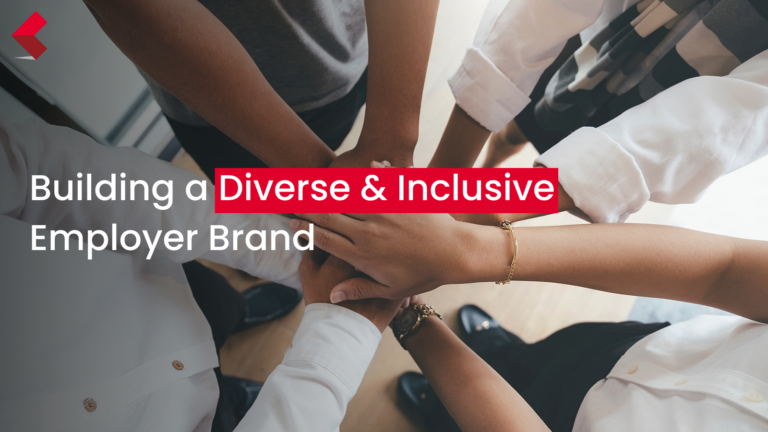Nothing but Jeff Bezos’ words are a perfect start for the blog that entails the hidden cost of bad hires.
“I’d rather interview 50 people and not hire anyone than hire the wrong person.”
Bad hires can be costly, both financially and in terms of lost productivity. The hidden costs of a bad hire can include recruitment costs, training costs, decreased productivity, and damage to the company culture. A recruitment agency can help you avoid these hidden costs by providing you with access to a pool of qualified candidates, conducting thorough screening and reference checks, and providing you with expert advice on the hiring process.
Globally, several organisations are falling foul of bad hires. In most cases, the true cost of a bad hire is roughly 3.5 times the employee’s annual salary. While a bad hire can have a significant financial impact, at the same time, it can also damage the culture, impact productivity as well as result in overall dissatisfaction between employees and employers.
In this blog, we will discuss how bad hires can impact your organisation’s reputation & profitability and the best option to fix the situation.
Counting the Costs: The Impact of Bad Hires
Hiring a new employee is costly. But the recruitment process can become costlier if you make a bad hire. If an employee is not the right fit, the employer loses the money spent on recruiting and training. Moreover, starting the process over again consumes employers’ time and resources. Things get even worse when the employee is hired to complete a project with tight deadlines.
1. Loss of productivity
Your business won’t function at its best productivity level if you have a bad hire. Often, an employee who isn’t a good fit for the role will deliver output that won’t meet the standards. Therefore, you will lose money against the value you expected. As a result, other team members would face additional work pressure to complete the work left incomplete by the bad hire.
2. Reduced employee morale & workplace culture
One bad apple ruins the bunch. Hiring those who are not a good fit for the organisation can make the workplace stressful. Ultimately, it affects existing employees’ attitudes toward their jobs, colleagues, and the workplace. At times, the employees would feel demotivated to manage extra work without additional compensation.
Do you know? Bad hires bring along a host of issues:
-
-
37% higher absenteeism rates
-
18% less productivity than good hires
-
15% less profit than good hires
-
3. Unhappy clients
A bad hire may lead to you losing valuable customers. Your clients have certain expectations from your business, but a bad hire would fail to meet them. In other words, they won’t leave their comfort zone to satisfy the client.
4. The ding to the company’s reputation
Your employees are the brand ambassadors of your organisation. An employee who doesn’t represent your company well can send a negative message to clients and prospective employees. This tarnishes your brand’s reputation and keeps new clients, partners, vendors, and prospective job applicants away.
Why is a Recruitment Agency a Cost-Effective Solution?
These days, finding an ideal candidate is hard. Granting all this, even if you manage to hire a candidate, things can get upside down if you make a bad hire. In such circumstances, nothing can be wiser than hiring a recruitment agency because it’s cost a cost-effective solution.
1. Faster hiring
Availing of the services of a specialist recruiter shortens the time to hire. You won’t have to spend time sourcing and placing the right candidates. A reliable recruitment agency can find candidates faster because of the availability of a candidate pool. Employers can tap into its talent pool that comprises already vetted candidates.
2. Industry expertise
A good recruitment agency houses specialist recruiters that possess industry expertise. These recruiters understand industries, market trends, salary levels, and skills candidates require to be successful.
RELATED READ: Agency Recruitment vs In-House Hiring: Which Is Right For Your Business?
3. Network
Recruiters develop a candidate pool using the network they have developed over time. This means employers can choose from a wide candidate database and select the ones that suit the role aptly. Also, if a company doesn’t hire a suitable candidate for some reason, they can still stay in touch with them through the recruitment agency.
4. Flexibility
A reputable recruitment agency also maintains a pool of temporary or contract candidates that can be placed temporarily. The flexible options give employers the opportunity to onboard someone for a short period or on a contract basis.
To Conclude
The hidden cost of bad hires: It’s more than what you observe.
It’s painful when you make the wrong hire. So, learn to correct the wrong steps you took previously while hiring. Be selective with whom you hire and ensure you see red flags to spot bad hires. The ultimate formula to prevent bad hires is to focus on your requirements and look for a recruitment partner that can assist you in hiring candidates you deserve and desire.
Why choose us?
Cornerstone Global Partners (CGP) Singapore has a track record of helping employers find the best employees. We are a group of recruiters that help businesses stay focused on what matters. Our team has continually adapted to meet the dynamic needs of organisations and the variety of roles they wish to fill.
Our passion for connecting the right employers with the right employees has remained unwavering all these years. That’s one thing we will never change. Contact us if you are looking for star candidates to work for your organisation, and we would be more than happy to connect.
FAQs
1. Which source of recruitment is cost-effective?
Hiring a recruitment agency is the most cost-effective source of recruitment. They maintain a candidate pool that consists of already vetted candidates, making it easier for employers to find employees. Moreover, they possess industry expertise that helps them understand employers’ requirements. Another benefit is that recruitment agencies offer flexible options for temporary or contractual employees.
2. How does cost affect recruitment?
Various factors affect recruitment. However, the most dominant factor is cost. Hiring an employee is a costly affair as it consists of the following expenses:
-
-
Advertising the open positions
-
Screening the candidates
-
Interviewing candidates
-
Conducting background checks
-
Training the new employee
-
All these factors affect recruitment and determine how employers find suitable candidates.








